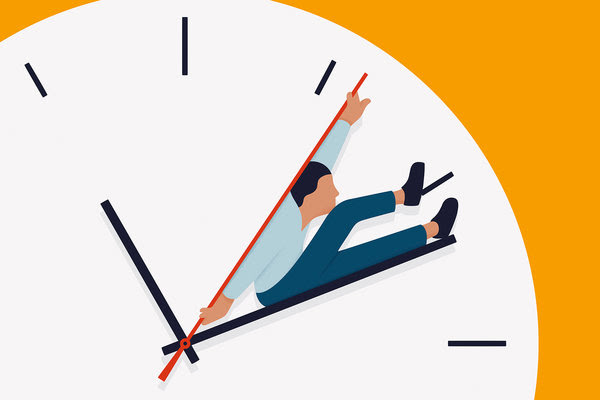THE EXHAUSTION IS REAL
Jessica Grose

While on a business trip in Chicago last month, I accidentally slept for 12 hours. I fell asleep at 9:30 p.m. local time and didn’t set an alarm, because I figured there was no way I would sleep past 7:30 a.m. Cue me waking with a jolt at 9:30 a.m., and only because housekeeping knocked on the door. I probably could have gone a solid 14 if left uninterrupted.
This sleep binge was unexpected, because I thought I had been getting good rest lately. My kids haven’t been sauntering into our bedroom at 3 a.m. for nonsense reasons, and though I don’t track it, I probably get between seven and eight hours of sleep most nights. And yet, when given the chance, my body told me I needed to sleep indefinitely.
The last time I covered why parents are so freaking tired, I talked about fragmented sleep being a big culprit of parental exhaustion — interrupted sleep can make you feel as tired as not getting enough sleep. But what if, like me, you’re getting uninterrupted sleep and your kids are not babies and you still feel like a fistful of crushed-up car seat Cheerios?
Anecdotally, I’m not the only one who feels this way. Being tired when you have kids is so expected it’s a cliché, and the subject of an estimated 40 percent of dad jokes. That’s why I was surprised to look at numbers culled from the American Time Use Survey — a Bureau of Labor Statistics data set that measures the way we spend our days — and see that moms and dads with young children are sleeping, on average, more than eight hours (480 minutes) a night, whether they are single or coupled. (Mothers tend to sleep longer, but their sleep is also interrupted more.)
If interrupted sleep is not the only reason for exhaustion, what else is going on for parents? Leah Ruppanner, an associate professor of sociology at the University of Melbourne, said part of the issue might be that during the day, parents feel more “time pressure” — which she describes as “not enough time, too much going on.”
Time pressure means that even though some parents are technically getting adequate sleep at night, they still feel exhausted. “Kids bring an intensity of demands that makes people feel time poor,” she said, and she has described the time pressure that mothers, in particular, feel as “a chronic stress that slowly deteriorates their health.”
Another reason parents might be feeling tired after eight hours of sleep is if they have wildly different wake-up times on different days. “If your schedule is shifting back and forth, you’re unlikely to feel refreshed or have good quality sleep,” said Dr. Christine Won, medical director of the Yale Centers for Sleep Medicine.
Here’s the bad news for those of us who like to sleep in on the weekends and let our children zombie out in front of the television: If you’re waking up early during the week because of your kids, you “have to settle for that as a permanent wake-up time,” Dr. Won said. If a never-ending 6 a.m. wake-up call makes you want to die, Dr. Won recommended 30-60 minutes of bright light therapy right after you wake up, either from a light box (Wirecutter has recommendations for good ones) or from daylight.
Dr. Won said strategic caffeine use is fine if you have trouble waking up, but keep it to the mornings, and no more than two cups a day — otherwise you’ll have difficulty falling asleep, or suffer from sleep fragmentation.
For parents whose children are still having frequent night wakings that cause sleep fragmentation, Dr. Won said a power nap can do wonders. Limit your cap nap to 20-40 minutes, and you should not nap less than six hours before going to sleep — so if bedtime is at 10 p.m., the power nap should happen before 4 p.m. This seems more realistic for me than waking up every day at 6. If you are getting solid, regular sleep at consistent hours and you still feel worn out, it’s worth getting a checkup, Dr. Won said, to rule out other health problems.
Finally, Ruppanner has a theory she has not yet studied, but that makes a lot of intuitive sense to me: Parents may feel exhausted because the quality, not just the quantity, of their leisure time has diminished. There is research showing that parents take less leisure time than non-parents, and that mothers take less leisure time and have more fragmented leisure time than fathers do. But Ruppanner theorized that even time parents are reporting as leisure is actually used productively. For example, parents aren’t just watching TV, they’re also folding laundry and filling out school forms and thinking about the grocery list (that good ol’ mental load).
Though weekday power naps may be in my future, I have no regrets about the half-day sleep marathon I took in that hotel room. I felt like a superhero afterward.




2 Comments